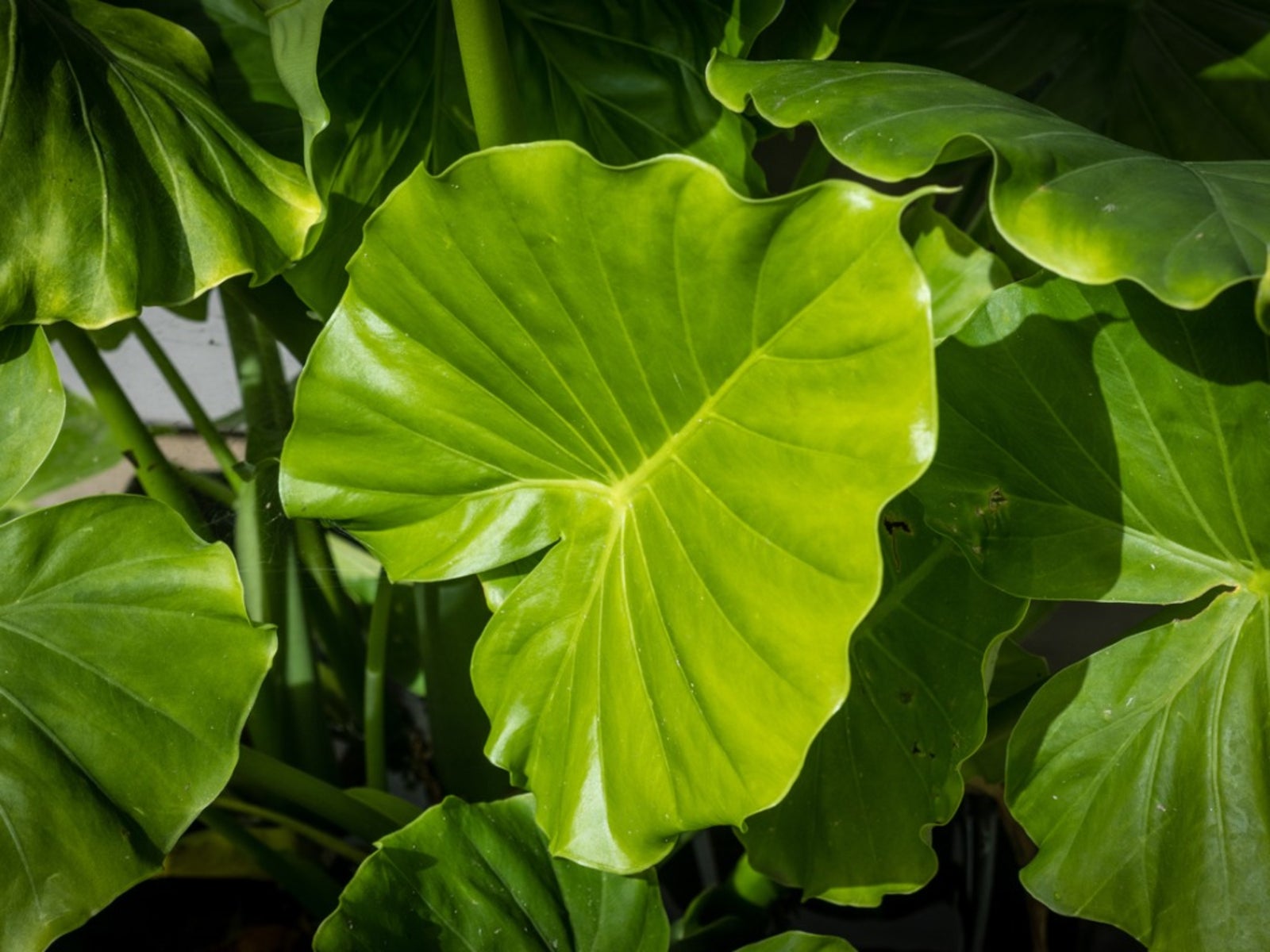That glossy, vibrant Amazon Elephant’s Ear plant is the crowning jewel of your indoor jungle. But keeping those dramatic leaves hydrated can be a challenge. Overwater and you risk root rot. Underwater and leaves turn crispy and brown. So how do you determine precisely when your finicky friend needs a drink? Let’s explore the tell-tale signs that your Elephant Ear is thirsty so you can keep it flourishing.
Read the Leaves
Your Elephant Ear’s foliage provides valuable intel on its water needs. Learn to interpret these messages:
-
Drooping leaves – Dehydration causes leaves to go limp and bend downward. Perk them back up with a thorough watering
-
Wrinkled leaves – As moisture decreases, leaves lose their smooth texture and pucker. Time to reach for the watering can!
-
Crispy brown edges – Dry air and underwatering cause leaf tips and margins to turn tan and crispy. Hydrate immediately to prevent further damage.
-
Yellowing leaves – Underwatered Elephant Ears show early signs of distress with dull, yellowish leaves. Address quickly before leaves drop.
Weigh the Pot
Heft up that planter and gauge its weight. Here’s what it reveals:
-
Light pot – A pot that feels significantly lighter when lifted signals the soil has dried out and moisture has decreased. Get watering!
-
Heavy pot – If the pot still feels heavy, the soil likely retains adequate moisture. Hold off watering to avoid oversaturating.
Probe the Soil
Stick your finger into the soil and get the inside scoop. What you want to feel:
-
Dry top layer – If the first 1-2 inches of soil feels dry to the touch, it’s time to water your Elephant Ear.
-
Moist lower layer – Soil that’s dry on top but still somewhat moist farther down means you can wait a day or two to water.
-
Saturated soil – Wet, muddy soil indicates you need to hold off watering to prevent root rot.
Monitor Moisture Meter
Take the guesswork out by using a moisture meter to measure water content in the soil.
-
0-2 reading – Bone dry soil screams for a good soaking immediately.
-
3-4 reading – Time to schedule a watering within the next day as soil dries out.
-
5-6 reading – Soil still has adequate moisture. No need to water yet.
Know Your Plant’s Habits
Learn your specific Elephant Ear’s preferences. Plants in porous terracotta pots or fast-draining soil will need water more frequently than those in plastic planters and moisture-retentive soil. Likewise, plants in sunny spots dry out quicker than those in lower light. Get to know your plant’s unique rhythms.
By tuning in to multiple signals – the leaves, pot weight, soil moisture, and your plant’s habits – you’ll soon master the art of determining precisely when your Elephant Ear needs a refreshing drink. Then you can keep those tropical leaves hydrated and flawless year-round. Stay observant and let your plant guide you to watering success!

Finding light for Amazonian Elephant’s Ear in your home
Amazonian Elephants Ear may have difficulty thriving, and will drop leaves , without ample sunlight.
Place it less than 3 feet from a south-facing window to maximize the potential for growth.
Select your region to see how the current weather in your area affects the placement of Amazonian Elephants Ear in your home .
Taxonomy Scientific name
Amazonian Elephants Ear needs 0.5 cups of water every 9 when it doesn’t get direct sunlight and is potted in a 5″ pot.
Use our water calculator to personalize watering recommendations to your environment or download Greg for more advanced recommendations for all of your plants.
Water 0.5 cups every 9
Does your plant get direct sunlight? No Yes
Select the pot size
Greg is a plant care intelligence that has learned how plants work so you can grow with confidence!
How to water an Elephant Ear plant and keep it from drying out.
FAQ
How do I know if my elephant ears need water?
How often do you water an Amazonian elephant ear?
What does an overwatered elephant ear look like?
Do elephant ear bulbs need a lot of water?

